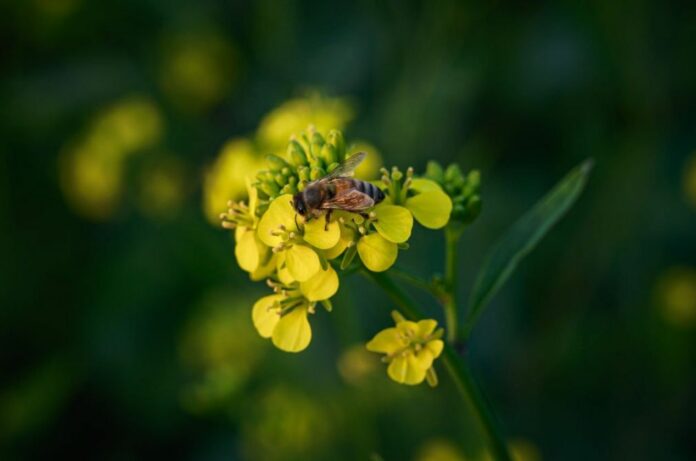In a statement released Friday, dozens of scientists, experts, and activists called for a ban on releasing genetically edited organisms into the wild. They said that doing so could pose serious risks to the pollinators of the world.
The appeal was made at important biodiversity talks in Montreal. Delegates from almost every country in the world were there to work out a plan to stop people from destroying the environment, which threatens the natural systems that keep life going on Earth.
In the past few years, a lot of new genome-editing tools that change the genetic material of living things have come out. Most of these tools are being researched and developed to help farmers with insects and plants.
They might benefit agriculture, human health, and even species conservation, according to supporters.
However, the letter from the French non-governmental organization Pollinis warns that their usage in the wild entails “understudied risks which could accelerate the decline of pollinator populations and put entire food webs at risk.”
The signatories, who included experts in the fields of insects, pollinators, and agroecology, urged nations participating in the UN biodiversity discussions to resist the use of genetic biotechnologies in the natural world.
They said that the science we have now can’t give “reliable and robust” risk assessments for possible harm to other species, like pollinators and the plants, animals, and whole ecosystems that depend on them.
“Pollinating insects are already facing an alarming decline due to external stressors, adding hazardous and unassessed genetic biotechnologies to this fatal mix will aggravate the stress on pollinators and may precipitate their extinction,” the statement read.
As experts warn that a million species are threatened with extinction, the UN discussions in Montreal are entrusted with outlining an ambitious plan for how humanity might live “in harmony with nature” in the next decades.
One of the topics available for discussion focuses explicitly on the possible dangers of genetic engineering, and a resolution on this issue might either result in more regulation or encourage their usage.
Biotech
Unlike GMOs, which introduce an exogenous gene into a plant or animal, modern gene editing methods directly change the genome of a living thing without the addition of extraneous materials.
One such is so-called “gene drive” technology, which employs instruments like CRISPR-Cas9, DNA snipping “scissors” that may add, remove, or modify genes in various ways.
This can make it more likely that an engineered trait will be passed on to more offspring than it would have been by chance over many generations.
The Bill and Melinda Gates Foundation has helped fund a flagship project that has made it possible to try to get rid of malaria.
In 2018, scientists used a gene editing tool to design the extinction of a whole colony of malaria-carrying mosquitoes in a lab.
According to the Pollinis letter, businesses have submitted patent requests outlining the use of gene drive technology to combat “hundreds” of agricultural pests.
A different kind of biotechnology employs “genetic silencing” to prevent certain genetic expressions from occurring in plants or animals.
This would enable the eradication of agricultural pests like fruit flies and the Colorado potato beetle, which obliterate potato harvests.
The Pollinis statement urged the matter to be “urgently addressed at the international level” and noted that some of these biotechnologies had already been given approval for usage in various regions of the world.
Out in the wild?
Advocates of these biotechnologies seek to move the experiments out of the laboratory and into the wild.
Only the insect-resistant MON810 corn from Monsanto is permitted for growing in Europe.
But in countries like the United States, Canada, Argentina, Brazil, Japan, and India, among others, a far more accommodating environment favors biotech goods.
The European Food Safety Authority’s GMO specialist and University of Aix-Marseille biology professor Christophe Robaglia stated the EU’s restrictions on these biotechnologies were essentially “obsolete.”
He claimed that some of these so-called novel breeding methods may “improve” plants when used on them by making them more drought-tolerant or resistant to viruses.
The International Union for Conservation of Nature (IUCN) approved a resolution in September 2021 at a conference highlighting the need of the “precautionary principle” in relation to synthetic biology.
The Pollinis statement is most worried about using these methods on insects that don’t only live in one place.
It was especially concerned about “gene transfer” across species.
This is the danger that pest alterations might perhaps infect the genomes of non-target species, potentially causing a chain reaction that would destabilize other species.
Image Credit: Soumyabrata Roy/NurPhoto via Getty Images
